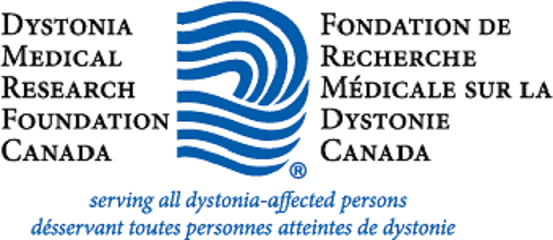
One of the most common inquiries the DMRF Canada receives is from people seeking help locating a doctor who is qualified to diagnose and treat dystonia. They may have received a tentative diagnosis from a general neurologist and need a movement disorder specialist to confirm or rule out dystonia. Their doctor may have relocated or retired, and they need help finding a new one. Or maybe they are interested in getting an additional medical opinion on treatment options.
Because treating dystonia is so specialized, seeing the appropriate medical professional can make a dramatic difference in treatment options offered and results from treatment. Helping individuals and families locate qualified doctors is one of the most important services DMRF Canada provides.
Suggestions for locating a qualified doctor include:
Reach out to DMRF Canada for Assistance
Many people are not aware that not all doctors can be expected to diagnose and treat dystonia. The DMRF Canada maintains a voluntary directory of doctors
Also, DMRF Canada staff is available by phone, email, and social media to provide individual assistance with finding a doctor.
Consult a Movement Disorder Specialist
Dystonia is a disorder that disrupts communication between the brain and muscles, and this prevents the body from moving normally. It may come as a surprise to many that there is a subspecialty of medical doctors who have dedicated their careers to caring for people with movement disorders and researching these specific neurological problems.
A movement disorder specialist is a neurologist with intensive training and experience specifically in movement disorders including dystonia, Parkinson disease, essential tremor, tics, and more.
Check Credentials
A credential to identify a movement disorder specialist is that the physician has completed clinical fellowship training specifically in movement disorders.
Some movement disorder specialists may complete clinical fellowship training in neurophysiology, but this may indicate more of a specialty in epilepsy and seizure disorders rather than movement disorders.
Child neurologists with expertise in movement disorders may be challenging to locate. Some movement disorder clinics treat children while others may refer young patients to an affiliated child neurology program. Information about a doctor’s training and credentials may be available on the practice or medical institution’s website.
Consider Additional Specialists Based on Your Needs
Depending on the type of dystonia, additional medical professionals may have appropriate credentials to offer diagnosis and treatment.
An increasing number of physical medicine and rehabilitation (PM&R) doctors (sometimes called “physiatrists”) treat dystonia, especially dystonia associated with cerebral palsy, stroke, and brain injury.
Credentials that may indicate a PM&R physician has expertise in dystonia include certification in electrodiagnostic medicine (EMG) and advanced training in neurorehabilitation. A small number of medical institutions offer advanced fellowship training for PM&R physicians specifically in movement disorders neurorehabilitation.
Special Considerations for Focal Dystonia
Additional medical specialties may treat focal dystonia that affects a specific area of the body. For example, neuro-ophthalmology is an ophthalmic subspecialty that addresses the relationship between the eye and the brain. This can include blepharospasm, a focal dystonia of the eyelid and brow muscles. Although experience with blepharospasm may vary because it is a rare disorder compared to more common eye conditions, neuro-ophthalmologists are often very skilled in administering botulinum neurotoxin injections for eye conditions, including blepharospasm.
Laryngeal dystonia (also known as spasmodic dysphonia) is a focal dystonia of the vocal cord muscles. Treatment often involves collaboration between a speech-language pathologist and otolaryngologist (ear, nose, and throat specialist). An otolaryngologist who has further subspecialized in the larynx (voice box), voice, and related problems such as swallowing is a laryngologist.
Additional Sources
Your health insurance provider is also a source for identifying doctors and clarifying whether they are covered by your plan.
DMRF Canada support groups and online forums may also help identify doctors. You may be able to connect with individuals who have firsthand experience with the doctor, the medical institution, and administrative staff—all of which may affect selecting a doctor that is right for you.
Thank you to Dystonia Medical Research Foundation (USA) for allowing us to share this information. The DMRF is a 501(c)(3) non-profit organization dedicated to advancing research for improved dystonia treatments and ultimately a cure, promoting awareness, and supporting the well-being of affected individuals and families.
